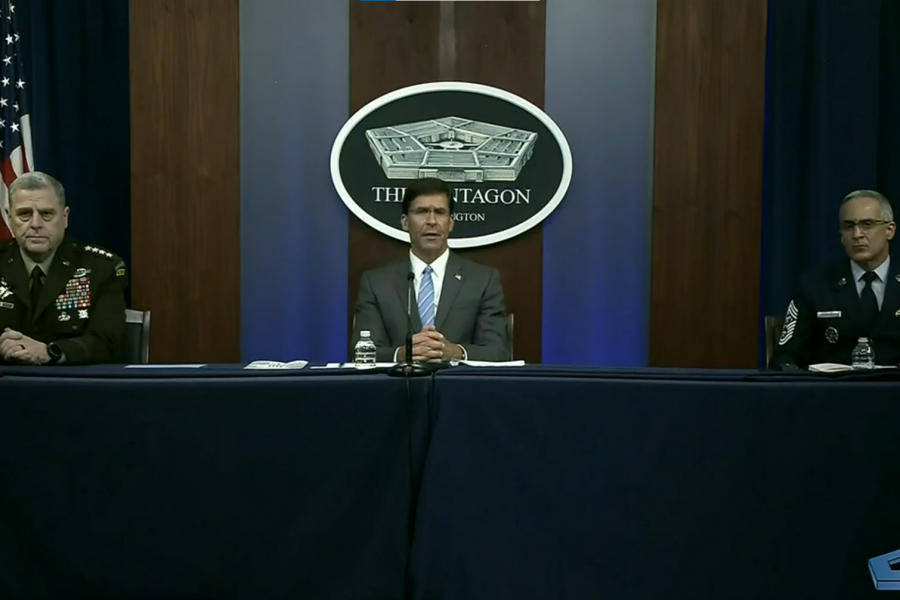The military’s travel and other restrictions related to the ongoing COVID-19 pandemic are likely to stick around for a while, until a vaccine is broadly available, which Chairman of the Joint Chiefs of Staff Gen. Mark A. Milley said he expects to be a matter of months.
Milley, Defense Secretary Mark T. Esper, and Senior Enlisted Adviser to the Chairman Ramón Colón-López on Sept. 24 hosted a virtual town hall with service members, with multiple questions focused on COVID-19 restrictions. In response to a question on how soon restrictions would be lifted, Milley said for now, any changes are “conditions based” and depend on where service members are stationed.
“We have to be mindful of our No. 1 priority, which is the health of the force writ large,” Milley said.
Restrictions on travel, along with mandatory quarantines, will remain for the time being. Additionally, “we know, factually, that masks work,” he said, along with social distancing and hygiene practices, so those requirements also will remain.
A vaccine is on the “fast track” through the Operation Warp Speed joint effort between the Defense Department and Department of Health and Human Services. “I fully expect a successful, safe vaccine in the near term,” Milley said, adding that he doesn’t have “exact numbers,” but he expects vaccines to roll out in the fall through the end of the year for initial groups before being broadly distributed.
The vaccine will eventually be a “great solution, and it will defeat the COVID virus over time,” he said.
Esper said the Pentagon has distributed more than a dozen memorandums on force protection since January, which have provided centralized guidance to commanders who then can provide “decentralized execution based on local conditions.” There will continue to be “red” areas that will be limited for permanent change of station moves, with waivers available. “We’re going to continue that kind of conditions-based approach as we move forward,” he said, adding that conditions will change “all the time.”
